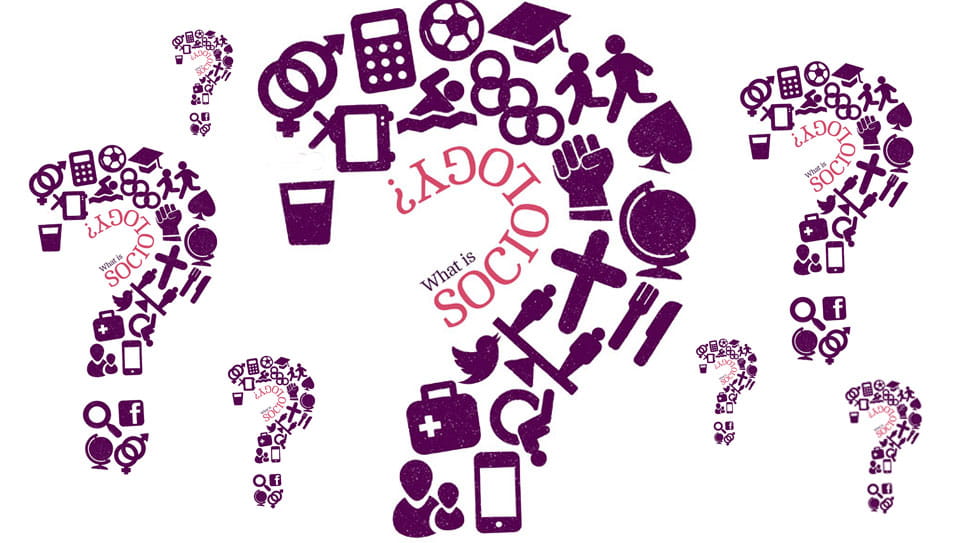
Why is Sociology Important in Today’s Society?
- Understanding Society: Sociology provides a framework to understand how society functions, the dynamics of social groups, and the forces that influence human behavior. It helps us analyze social structures, institutions, and patterns of interaction, enabling a deeper comprehension of the complexities of our social world.
- Social Issues and Inequalities: Sociology sheds light on social issues, inequalities, and injustices prevalent in modern society. It helps identify and analyze factors such as social class, race, gender, and age that contribute to disparities and discrimination. By studying these issues, sociology encourages critical thinking, social awareness, and efforts towards social change and equality.
- Social Change and Policy: Sociology plays a crucial role in bringing about social change. By examining social problems and their root causes, sociologists contribute to the development of policies and interventions aimed at addressing societal issues. They provide evidence-based insights that can inform policy decisions and shape more equitable and inclusive societies.
- Cultural Understanding and Diversity: Sociology helps us appreciate and understand diverse cultures, beliefs, and values. It promotes cultural sensitivity and facilitates intercultural dialogue, reducing prejudice and promoting social cohesion in multicultural societies. By studying the intersections of culture, society, and identity, sociology encourages respect for cultural diversity.
- Personal and Professional Development: Sociology enhances personal development by fostering critical thinking skills, empathy, and a broader perspective. It encourages individuals to question social norms and assumptions, leading to a deeper understanding of oneself and others. Additionally, sociology provides a foundation for careers in various fields such as social work, policy analysis, research, education, and advocacy.
- Social Research and Data Analysis: Sociology equips individuals with research skills and methodologies to gather, analyze, and interpret data on social phenomena. This enables evidence-based decision-making, policy formulation, and evaluation of social programs. Sociological research helps generate knowledge that contributes to our understanding of society and informs evidence-based practices.
- Social Integration and Well-being: Sociology explores the social factors that influence individual and collective well-being. It examines the impact of social relationships, social support networks, and community structures on mental health, social integration, and overall quality of life. By understanding these dynamics, sociology can inform interventions that enhance well-being and promote social cohesion.
In summary, sociology is important in modern society as it provides insights into social behavior, inequalities, and cultural diversity. It contributes to social change, policy development, and personal growth while fostering a better understanding of ourselves and the world around us. By studying sociology, we gain valuable tools to address social challenges and work towards creating a more just, inclusive, and harmonious society.
what is Sociology ?

Sociology is a discipline within the social sciences that focuses on the study of human society, social relationships, and the various structures and processes that shape them. It is concerned with understanding how individuals are influenced by social forces, how societies are organized and function, and how social interactions and institutions impact people’s lives.At its core, sociology seeks to examine and explain the social patterns, behaviors, and dynamics that occur within groups, communities, organizations, and societies. It explores topics such as social inequality, social change, culture, socialization, deviance, social institutions, and collective behavior.
Sociologists use a variety of research methods to investigate social phenomena. They may conduct surveys, interviews, or observations to gather data and analyze social trends and patterns. They also utilize statistical analysis and theoretical frameworks to interpret their findings and develop theories about social behavior and society as a whole.
One of the central concepts in sociology is the idea that human behavior is influenced by both individual factors and larger social structures. Sociologists examine how social norms, values, beliefs, and cultural practices shape individuals’ actions and attitudes. They also study how social structures, such as institutions, organizations, and systems of power, impact social interactions and contribute to social inequalities.
Sociology has broad applications and is relevant to various fields and professions. It helps us understand the complexities of social life, provides insights into social problems and challenges, and informs policy-making and social interventions. Sociological knowledge is valuable in areas such as education, healthcare, criminal justice, politics, business, and community development.
Overall, sociology provides a systematic and scientific approach to understanding human society. By studying social phenomena and analyzing social relationships, sociologists aim to contribute to the improvement of society and promote social justice and equality.
what is the importance of sociology for society

Sociology is the scientific study of society, social interactions, and social relationships. It examines various aspects of human behavior, social structures, and the impact of social forces on individuals and groups. The importance of sociology to society lies in its ability to provide valuable insights and understanding of the social world we live in. Here are some key reasons why sociology is significant:
- Understanding social dynamics: Sociology helps us comprehend how society functions and how individuals are shaped by social forces. It examines social institutions such as education, family, economy, politics, and religion, and analyzes their impact on individuals and groups. By studying these dynamics, sociology enables us to understand social patterns, inequalities, and the factors that influence social change.
- Promoting social awareness: Sociology raises social awareness by shedding light on various social issues and problems. It examines topics such as poverty, inequality, discrimination, crime, gender roles, and cultural differences. By studying these issues, sociologists aim to uncover the root causes, consequences, and potential solutions, fostering empathy and compassion in individuals and communities.
- Challenging assumptions and stereotypes: Sociology challenges preconceived notions and stereotypes by examining social phenomena objectively. It encourages critical thinking and questioning of societal norms, values, and beliefs. Sociological research offers evidence-based insights that can debunk myths and misconceptions, promoting a more accurate understanding of diverse social groups and reducing prejudice and discrimination.
- Informing policy and decision-making: Sociology provides policymakers, organizations, and institutions with valuable data and analyses that inform policy development and decision-making processes. By studying social trends, behaviors, and patterns, sociology helps identify social problems, evaluate the effectiveness of existing policies, and develop evidence-based solutions. It contributes to the creation of more inclusive, equitable, and just societies.
- Enhancing social change: Sociology plays a crucial role in driving social change. By studying social movements, collective action, and social revolutions, sociology identifies the factors that lead to social transformation. It provides insights into how social movements mobilize, organize, and challenge the status quo, leading to advancements in civil rights, gender equality, environmental sustainability, and other important societal changes.
- Improving interpersonal relationships: Sociology explores the dynamics of social interactions, relationships, and group dynamics. By understanding how individuals are influenced by social contexts, sociology offers valuable insights for improving communication, resolving conflicts, and fostering healthier relationships within families, workplaces, and communities. It encourages empathy, tolerance, and respect for diverse perspectives.
In summary, sociology is important to society because it helps us understand the complexities of the social world, promotes social awareness, challenges stereotypes, informs policy-making, drives social change, and enhances interpersonal relationships. By studying sociology, we can gain a deeper understanding of ourselves, others, and the society we inhabit, ultimately contributing to a more inclusive, equitable, and harmonious world.
What is the aim and objective of sociology?

Sociology is a social science discipline that aims to study and understand human society, social behavior, and the various structures and processes that shape and influence social interactions. Sociology has several goals and objectives that guide its research, analysis, and contributions to our understanding of society. Here are some key goals and objectives of sociology:
- Understanding Society: Sociology seeks to comprehend the structure, dynamics, and functioning of society as a whole. It explores how individuals, groups, and institutions interact, and how social relationships and patterns emerge and evolve over time.
- Explaining Social Behavior: Sociology aims to explain the causes and consequences of social behavior. It seeks to identify the factors that influence individuals and groups in their actions, attitudes, and beliefs, including social norms, values, and cultural practices.
- Analyzing Social Inequalities: Sociology examines social inequalities and disparities in areas such as wealth, power, education, and access to resources. It investigates the ways in which social structures, such as class, race, gender, and age, shape these inequalities and impact people’s lives.
- Investigating Social Change: Sociology studies social change and its impact on individuals and society. It analyzes the processes, mechanisms, and drivers of social change, ranging from technological advancements and globalization to political and cultural transformations.
- Researching Social Problems: Sociology investigates social problems and issues prevalent in society, such as poverty, crime, discrimination, and inequality. It aims to understand the root causes of these problems and provides insights that can inform policies and interventions for social improvement.
- Contributing to Public Policy: Sociology aims to contribute to the development of effective public policies and social interventions. By providing empirical evidence and critical analysis, sociologists offer insights into social issues that can inform decision-making and shape policies aimed at creating a more just and equitable society.
- Advancing Sociological Knowledge: Sociology aims to generate new knowledge and theories about society and social behavior. Through research and analysis, sociologists expand our understanding of various social phenomena and contribute to the ongoing development of the field.
These goals and objectives of sociology are interconnected and serve to enhance our understanding of human society, shed light on social issues, and contribute to the well-being and development of individuals and communities.